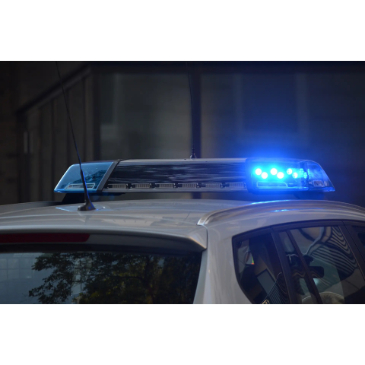Memorial Day weekend is a time for families and friends to come together and celebrate. Spring has fully arrived, and the extra day off allows Colorado residents to take a long weekend and visit vacation spots throughout the state.
But be warned: if you will be hitting the road this Memorial Day, you need to be on alert. Police and highway patrol will be out in large numbers looking for drunk drivers.
Over the last decade, Memorial Day travel has steadily increased every year. In 2016, for instance, an estimated 38 million Americans traveled over the holiday weekend, adding a 2% increase in the amount of car traffic. If you’re hoping to jump on the road early to avoid the increased congestion, think again. Many drivers will begin their weekend road trips on Thursday on the theory they can avoid the heavy traffic. But a study from Washington, D.C., found that Thursday was worse than Friday, and that delays were anywhere from 50% to 100% worse on Thursday compared to a regular commuting day.
More Cars Means More Accidents
 With the increased traffic and the large number of drivers, it’s no surprise that Colorado will see an uptick in accidents as well. There are plenty of reasons for this, but a leading factor will be increased alcohol consumption. According to the National Highway Traffic Safety Administration (NHTSA), from 2001 to 2005, there were 36 daily fatalities on average in the United States that occurred because of crashes involving alcohol. The numbers spike during holiday periods, with Memorial Day among the worst.
With the increased traffic and the large number of drivers, it’s no surprise that Colorado will see an uptick in accidents as well. There are plenty of reasons for this, but a leading factor will be increased alcohol consumption. According to the National Highway Traffic Safety Administration (NHTSA), from 2001 to 2005, there were 36 daily fatalities on average in the United States that occurred because of crashes involving alcohol. The numbers spike during holiday periods, with Memorial Day among the worst.
Of course, it’s not just Memorial Day. The period between Memorial Day and Labor Day has been labeled the “The 100 Deadliest Days” for teenage drivers. Studies have found that teens are drinking at younger ages and are drinking more frequently during their summer vacations. The U.S. Department of Health and Human Services claims that approximately 5.8% of teens aged 16 and 17 reported driving under the influence of alcohol in 2010. The number jumps to 15.1% for 18- to 20-year-olds.
Here’s the thing: Colorado law enforcement knows all about these statistics, and they will be prepared. On holidays like Memorial Day, traffic police will be out in force looking to catch anyone who shows even the slightest sign of impairment. If you’re hoping to have a beer or two and then pop down to the store this holiday weekend, chances are you’ll be disappointed.
Colorado Has Strict Laws When It Comes to Impaired Driving
According to Colorado law, a DUI is defined as driving with a blood alcohol content level above .08%. A conviction means that you will face punishments that include fines, jail time, revoked driving privileges, and more. This is not to mention the collateral damage, such as steep increases to your insurance premiums, the potential for losing employment, a damaged reputation, and a permanent black mark on your record.
Colorado law distinguishes between a DUI (Driving Under the Influence), which is charged for drivers who registered a BAC of .08% or higher, and a DWAI (Driving While Ability Impaired), for those registering between .05% and .08%. Even if this was a first offense, it’s unlikely you’ll get off with a warning. The penalties for your first DUI include up to a year in jail, as much as a $1,000 fine, a suspended license, and 96 hours of community service. And while the penalties are slightly less severe for a DWAI, they are still harsh.
Of course, if you have any prior alcohol-related offenses, you’ll face worse repercussions. Not only are the penalties higher, but it’s more likely that the court will sentence you to the maximum. After multiple offenses, you can be charged with felony DUI, which carries a maximum of twelve years in jail and a $500,000 fine.
Furthermore, in addition to the institutional penalties, there is also a high cost associated with a DUI in Colorado. The Colorado Persistent Drunk Driver Committee conducted a study that found a first-time offender must spend an average of $13,530 when adding up all the court fees, fines, increased insurance, and legal expenses.
What to Do If You Get Pulled Over
Some people are frightened of taking a breathalyzer or other chemical test. However, refusing to do so triggers Colorado’s Express Consent law, which can cause a one-year revocation of your driving privileges. The suspension increases to two years for a second offense, and three years on a third offense. However, while refusing a chemical test can cause a license revocation, refusing field sobriety tests does not. If an officer requests that you perform a field sobriety test, politely but firmly refuse – and call your lawyer.
If you aren’t careful, a simple drive home this Memorial Day can turn into a life-altering event. If you’ve been charged with an alcohol-related driving offense, you can’t afford to face these charges alone. Talk with a Colorado Springs DUI defense attorney at The Bussey Law Firm, P.C., who can mount a vigorous defense on your behalf. Call (719) 475-2555 for a free consultation.
